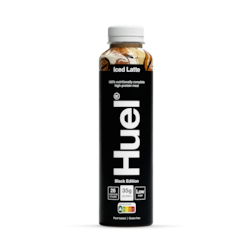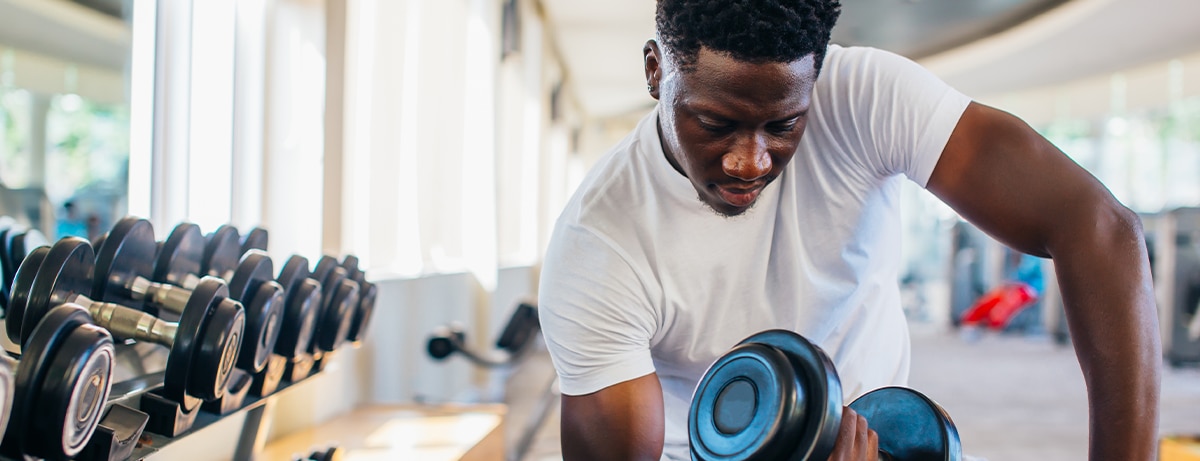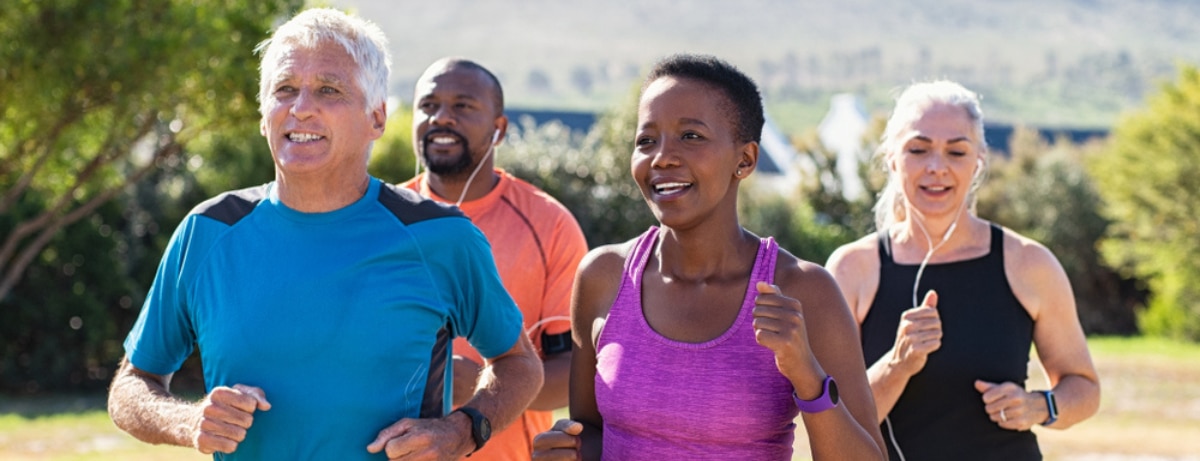20% off €35
Code:EXTRA20
6 post-workout foods to support muscle recovery

Hitting the gym the first time or the hundredth? Either way, here’s how the right nutrition can power up your recovery and the key foods to keep on your radar
Our top picks
24g of protein
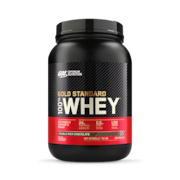
Optimum Nutrition
Optimum Nutrition Gold Standard 100% Whey Protein Double Rich Chocolate 899g
€45.99
Caffeine-free
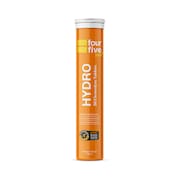
fourfive
Fourfive Hydro Plus Orange & Mango 20 Tablets
Buy one get one 1/2 price
€10.49
Whether you’re just starting your fitness journey or you’ve been crushing it in the gym for years, one thing’s for sure: a solid nutrition plan is just as important as your workout routine when it comes to maintaining a healthy lifestyle.
Here’s a fun fact that might surprise you: the right nutrition can actually help your body recover after a workout and get you ready to tackle your next one with full force.1
So, want to know which foods and supplements help with muscle recovery? Here’s what you need to know to fuel your body like a pro.
What post-workout foods help with muscle recovery?
We all know that what you eat can make a difference when it comes to muscle recovery, but not every snack is created equal. So, what should you chow down on after a killer workout to help those muscles grow and get back in tip top shape? Here’s a list of six foods to help recovery, all supported by the latest research.
- Whey protein: your muscle’s best friend
Let’s kick things off with protein – specifically whey. Packed with the building blocks your muscles crave, protein is here to help with the maintenance and growth of muscle mass.1 So if you want support, this might just be your best option. But, if you’re not a fan of dairy, you might want to skip this one. - Eggs: a nutrient-packed protein bomb
It’s time to crack open the truth – eggs are a recovery superhero! These little guys are rich in protein, healthy fats and essential amino acids. The egg yolk is especially packed with protein, so don’t toss it out. Studies2 show that eggs can be a solid go-to after your workout, providing your muscles with the fuel they need to repair and grow.3,4 - Dairy: delicious combo of protein and calcium
Dairy isn’t just for building strong bones – it’s also packed with proteins to help your muscles recover and contributes to growth in muscles. Think yoghurt, cheese and even a glass of milk. They contain the magic mix of casein and whey proteins, plus essential minerals like calcium.5 But if dairy doesn’t sit well with you, don’t worry – try soy-based alternatives like soy milk or soy yoghurt. - Oily fish: fatty fish for happy muscles
Salmon and sardines are more than just tasty – they're loaded with omega-3 fatty acids which means these healthy fats can make all the difference when it comes to post-workout recovery.6 Not a fan of fish? No problem – fish oil supplements might be a good alternative (but make sure to chat with your doc first). Plus, there’s vegan alternative omega-3 supplements too. - Carbs: your body’s fuel for the finish line
Carbs are a must if you're doing endurance exercise. When you break down carbs, they turn into glucose, which fuels your muscles during high-intensity activity.7 So, if you’re hitting those long runs or cycling sessions, make sure to load up on potatoes, rice, bread and pasta to keep your energy levels high and your recovery smooth.8 - Berries: sweet recovery treats
Don’t underestimate the power of berries, especially blueberries. Studies suggest that eating blueberries post-workout can actually lower oxidative stress and support recovery.9,10 So why not toss some into your yoghurt, cereal or smoothie? Not only are they tasty, but they can pack a punch when it comes to recovery.
The most important nutritional advice for post-workout recovery is to make sure you’re eating plenty of food that optimises your intake of macronutrients (fat, protein and carbs), micronutrients (vitamins and minerals) and fluids.11,12
Eating a well-balanced diet – made up of starches, fruits, vegetables, meat, beans, peas, lentils, fatty fish and dairy (or dairy-replacement) products – should help you meet these targets.13,14
However, if your diet doesn’t include some of these foods, you can always use supplements like protein powders, fish oil (or vegan omega-3 oil) and multivitamins.
Some of our favourite post-workout products
When your muscles are crying out for TLC after a tough session, Optimum Nutrition Gold Standard 100% Whey is there to answer the call – with 24g of protein (contributing to growth in muscle mass) in every deliciously chocolatey scoop.
It’s trusted by athletes and gym-goers everywhere and has been fuelling fitness journeys for more than 30 years. Whether you’re chasing PBs, after muscle growth or just trying to recover, this is the protein you’re going to want by your side. So, just pop it in your gym bag or blend into a morning smoothie, it’s your go-to for making gains with zero faff.
This isn’t just any drink, it’s a meal in a bottle. That means 26 essential vitamins and minerals, high in protein which supports muscle mass and a smooth iced latte flavour that actually tastes like a treat (because let’s face it, you deserve one). Whether you’re dashing to the gym, powering through meetings or just trying to eat something between emails, this little bottle has your back.
At home, on the train, or en route to your next adventure, Huel Black Edition is built for real life. It’s plant-based and convenient – because who has time to count spinach leaves? Just grab, shake and go.
Scientifically formulated with a blend of essential electrolytes, magnesium and water-soluble vitamins, these handy little tablets are your sidekick during and after exercise. Whether you're sweating it out in the gym, cycling through the countryside or just trying to bounce back from a hectic week, Hydro Plus helps you rehydrate and recover thanks to magnesium which helps with tiredness and fatigue.
With low sugar and absolutely no caffeine, it’s a vegan-friendly, low-calorie option with magnesium that supports energy production, metabolism and post-workout recovery. And the best bit? It’s all in a delicious tropical flavour that makes your water bottle way more exciting.
Simply drop a tablet into water, let it fizz and enjoy a refreshing sip that keeps you moving.
The final say
While what works for you may be different to what works for someone else, the overall importance of nutrition for muscle recovery is universal and can’t be understated.
From smooth lemon flapjacks to fruity protein waters and nutrient-packed shakes, post-workout nutrition doesn’t have to be boring or complicated. Whether you’re a fitness newbie or a seasoned gym-goer, what you put into your body after exercise plays a huge role in how you bounce back. Take a look at our favourite protein drinks next.
If there are any macro or micronutrients you think your diet is not giving you, you can always try adding supplements into your daily routine. However, for individualised nutrition advice based on your body and specific exercise routine, speak to a dietitian or your GP.
This article provides informational advice and is not a substitute for medical care. Curated by experts for accuracy, we take great care to ensure the information is up-to-date and relevant. However, you should always consult your GP or healthcare professional before using supplements or alternative products, particularly if you have medical conditions or are under supervision.
1. Moore, DR., et al. ‘Beyond muscle hypertrophy: why dietary protein is important for endurance athletes.’ Applied Physiology, Nutrition, and Metabolism. 2014;39(9):987–97.
2. Attia, YA., et al. ‘Protein and Amino Acid Content in Four Brands of Commercial Table Eggs in Retail Markets in Relation to Human Requirements.’ Animals. 2020;10(3):406.
3. van Vliet, S., et al. ‘Greater Stimulation of Postexercise Muscle Protein Synthesis after Consumption of Whole Eggs versus Egg Whites in Healthy Young Men.’ The FASEB Journal. 2017;31. Available from: https://doi.org/10.1096/fasebj.31.1_supplement.164.7.
4. Stephan van Vliet, Shy EL, Sidney Abou Sawan, Beals JW, Daniel WD West, Skinner SK, et al. Consumption of whole eggs promotes greater stimulation of postexercise muscle protein synthesis than consumption of isonitrogenous amounts of egg whites in young men. The American journal of clinical nutrition [Internet]. 2017 Dec 1 [cited 2024 Jul 15];106(6):1401–12. Available from: https://www.sciencedirect.com/science/article/pii/S0002916522026934
5. Alcantara, JMA., et al. ‘Impact of cow’s milk intake on exercise performance and recovery of muscle function: a systematic review.’ Journal of the International Society of Sports Nutrition. 2019;16(1).
6. Fernández-Lázaro D, Arribalzaga S, Gutiérrez-Abejón E, Mohammad Ali Azarbayjani, Mielgo-Ayuso J, Roche E. Omega-3 Fatty Acid Supplementation on Post-Exercise Inflammation, Muscle Damage, Oxidative Response, and Sports Performance in Physically Healthy Adults—A Systematic Review of Randomized Controlled Trials. Nutrients. 2024 Jun 27;16(13):2044–4.
7. Holesh JE, Aslam S, Martin A. Physiology, Carbohydrates [Internet]. Nih.gov. StatPearls Publishing; 2023 [cited 2024 Jul 15]. Available from: https://www.ncbi.nlm.nih.gov/books/NBK459280/
8. NHS. Starchy foods and carbohydrates [Internet]. [Cited 2024 Apr 15]. Available from: https://www.nhs.uk/live-well/eat-well/food-types/starchy-foods-and-carbohydrates/.
9. McLeay, Y., et al. ‘Effect of New Zealand blueberry consumption on recovery from eccentric exercise-induced muscle damage.’ Journal of the International Society of Sports Nutrition. 2012;9(1):19. Available from: https://doi.org/10.1186/1550-2783-9-19.
10. Ranchordas MK, Rogerson D, Soltani H, Costello JT. Antioxidants for preventing and reducing muscle soreness after exercise. Cochrane library [Internet]. 2017 Dec 14 [cited 2024 Jul 15];2017(12). Available from: https://www.ncbi.nlm.nih.gov/pmc/articles/PMC6486214/
11. Beck, K., et al. ‘Role of Nutrition in Performance Enhancement and Postexercise Recovery.’ Open Access Journal of Sports Medicine. 2015;6(6):259.
12. Sport and exercise | British Nutritional Foundation [Internet]. British Nutrition Foundation. 2024 [cited 2024 Jul 15]. Available from: https://www.nutrition.org.uk/creating-a-healthy-diet/sport-and-exercise/

